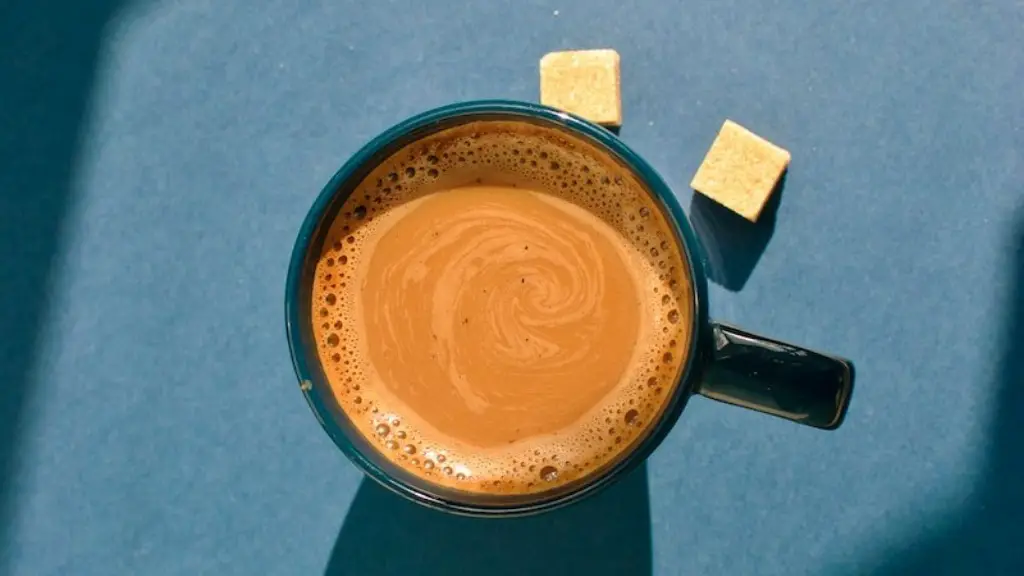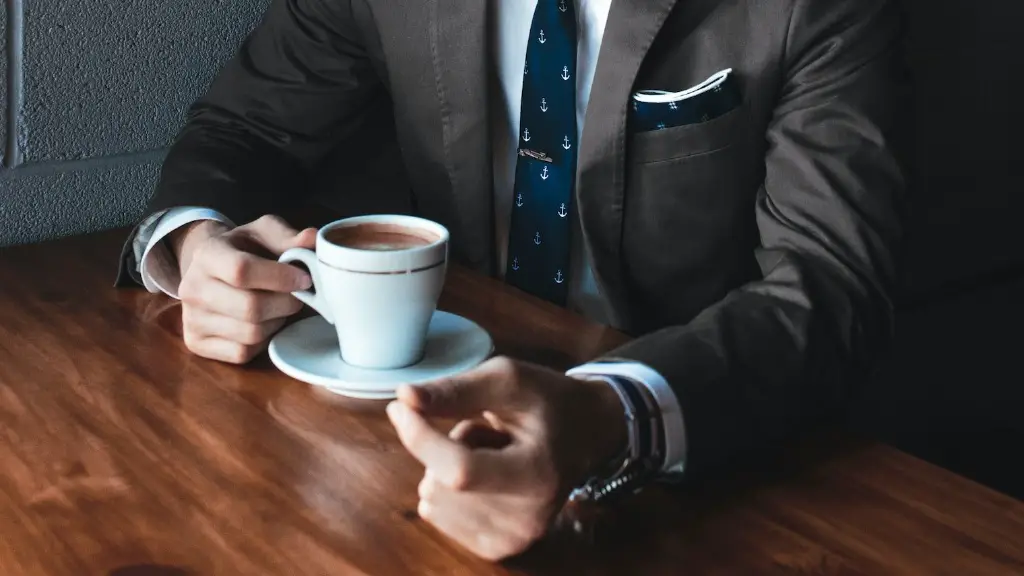Physical Affects of Coffee
Coffee is an incredibly popular beverage, enjoyed by millions of people around the world. But despite its popularity, studies have shown that drinking too much coffee can have negative effects on long-term health, especially if someone is a heavy consumer. One reason for this is that coffee is known to raise blood pressure, which increases the risk of hypertension and other cardiovascular problems, such as arrhythmia and stroke. That being said, regular coffee consumers can minimize the risks associated with excessive caffeine consumption and still enjoy their morning cup of joe. To do this, they need to consider how long it will take for the effects of coffee to wear off, and how much coffee they can consume to maintain their desired levels of productivity without running any risks.
Dr. Scott Miller, an expert on caffeine and health, identifies several factors that can influence the duration of an individual’s caffeine buzz. He identifies three factors that play a role: the type of coffee consumed, individual body chemistry, and tolerance levels. Different types of roasted coffee, brewing methods, and additives, like milk and sugar, can all alter the duration of time the individual remains affected. Additionally, individual body chemistry and tolerance levels can also vary widely, meaning that two people may experience different results, even if they drink the same type of coffee.
More specifically, the strength of the brew, the number of cups consumed, and the individual’s tolerance levels all play a role in determining how long the buzz lasts. Generally, the stronger the brew, the more intense the buzz, but the buzz will often wear off more quickly. Additionally, if someone consumes several cups, then their body typically needs more time to metabolize all of the caffeine, which will prolong the buzz.
Dr. Miller also notes that on average, a cup of coffee will produce its exhilarating, energizing effects for approximately one to four hours. However, it is important to note that this time frame can be different for different people. For some, it may be shorter, and for others, it may be longer. Consequently, it is best to experiment with different amounts of caffeine and different types of brewing methods to determine which one works best for your own metabolism.
Mental Affects of Coffee
In addition to its physical effects, coffee consumption can also affect mental health. Studies have found a link between high consumption of coffee and an increased risk of developing an anxiety disorder. This is likely because not only does it stimulate the release of stress hormones, such as cortisol and adrenaline, but it can also cause one to become dependent on it as a crutch to get themselves through the day.
Dr. Taylor Brown, an expert on mental health and caffeine, believes that coffee can have both positive and negative effects on mental health. On one hand, coffee can temporarily boost mental alertness and concentration, and help one stay motivated throughout the day. On the other hand, depending on the amount of intake and an individual’s genetically inherent levels of dopamine, coffee can cause one to become jittery, anxious, and unfocused.
Moreover, when it comes to stopping the consumption of coffee, it is best to wean off gradually and with the help of a medical professional. Those who are suddenly deprived of coffee may feel overwhelmed and experience anxiety or depression, which is why it is essential to establish healthy habits when it comes to drinking coffee and to gradually reduce intake.
Caffeine Withdrawal
When it comes to reducing caffeine intake, it is important to be aware of the symptoms of caffeine withdrawal. These symptoms may include headache, fatigue, anxiety, irritability, difficulty focusing, and trouble sleeping.
Dr. Elizabeth Wilson, an expert on caffeine addiction, explains that the severity of the symptoms is often proportional to the amount of caffeine being cut out. For example, if someone was to stop drinking coffee altogether, they might experience more severe symptoms than if they were to reduce their intake, yet still maintain some level of intake.
In addition, Dr. Wilson notes that the symptoms of caffeine withdrawal may last anywhere from two days to a week. However, she adds, the length of time varies greatly among individuals and often depends on their own body chemistry and tolerance levels.
Long-Term Benefits of Quitting Coffee
Despite the discomfort of withdrawal symptoms, there are still several key long-term benefits of quitting caffeine. First, it helps reduce the risk of hypertension and other cardiovascular issues, such as arrhythmia. Second, it improves sleep quality, energy levels, and overall mood. Finally, it helps prevent caffeine dependence and reduce the risk of developing an anxiety disorder.
What’s more, those who quit coffee often find that they are able to think more clearly and are more productive than they ever were when consuming caffeine. As a result, many discover that they are better able to stay focused on important tasks and activities throughout the day, without needing to rely on coffee as a crutch.
Developing Healthy Habits
The key to reducing caffeine intake and weaning off coffee is to focus on developing healthy habits. This means cutting down gradually, avoiding coffee-rich foods and snacks, eating a balanced diet, staying hydrated, getting plenty of sleep, exercising regularly, and meditating.
You can also try experimenting with other beverages and drinks, such as herbal tea, hot chocolate, juice, and smoothies. While these drinks may not contain caffeine, they can still provide the same comforting feeling one might receive from drinking a cup of coffee.
Social Benefits of Quitting Coffee
In addition to physical and mental health benefits, giving up coffee also has certain social advantages. For example, because coffee consumption often results in dependency, quitting coffee gives people the opportunity to become more independent of it. This means that they are more able to make decisions without relying on coffee as a crutch.
Plus, while it is possible to drink coffee in moderation, many people still find themselves tempted to drink more than one cup. Once one has quit coffee completely, however, they no longer have to worry about overdoing it. This ensures that one will no longer be at risk for negative physical or mental health impacts that can come from excessive caffeine consumption.
Financing Your Coffee Addiction
Lastly, for those who are concerned about the financial strain that buying coffee can have on their budgets, giving up coffee can also be quite beneficial from a financial perspective. Because coffee can be quite expensive, cutting it out can actually result in quite a bit of financial savings over time.
Moreover, those who are addicted to coffee may find themselves spending an excessive amount of money on specialty coffees and other coffee-related products. This can really add up over time and slowly chip away at someone’s wallet. If a person has a very limited budget, then the decision to quit coffee could be a great cost-saving measure.
Replacements to Coffee
For those who are determined to quit their coffee habit, there are alternatives that can fill the void. For example, if someone enjoys the taste and texture of coffee, they can turn to decaffeinated or low-caffeine beverages, such as herbal teas and energy drinks. However, those who need a caffeine boost can also turn to other beverages, such as yerba mate, matcha, and guayusa.
On the other hand, if one enjoys the ritual of brewing their own cup of coffee, they can opt for a high quality pour-over setup, which typically produces a tastier, more refined cup of coffee. This can also be an aesthetically pleasing addition to one’s kitchen and is sure to provide a great deal of satisfaction for anyone who enjoys the ritual of brewing.
Rethinking Your Intake
It is also important to reexamine one’s relationship with coffee, and to assess their reasons for drinking it in the first place. Many people drink coffee out of habit and may not even realize that they’ve become dependent on it in order to cope with stress and hard times.
By taking the time to identify these triggers and learning healthier coping methods, one can ultimately train their body and mind to break the addiction. This could involve engaging in activities that give one a sense of accomplishment and satisfaction, such as reading, athletic performance, reward, or any kind of creative endeavor.
Adopting New Habits
While it can initially be challenging to break the habit of drinking coffee, with a bit of perseverance, it can be done. One way to make the transition easier is to engage in habits that are not as caffeine dependent.
For instance, taking a walk outside every morning can help many people start their day energized and ready to tackle the day, without needing to rely on coffee for energy. Additionally, taking a hot shower or performing breathing exercises can also help to replenish energy stores and provide a sense of calm and balance.
Finally, those who still crave a hot beverage can opt to drink herbal teas, which are not only caffeine-free but also contain many beneficial antioxidants and vitamins. While it may seem like a challenge initially, those who can commit to reducing their caffeine intake will ultimately reap the rewards in the long run.


